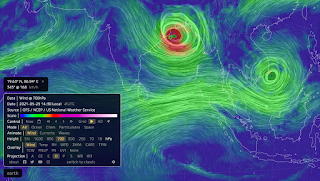A short note on Martial Law | Find Your Advocate
WHAT IS MARTIAL LAW?
Martial law is the law controlled by military powers that are summoned by an administration in a crisis when the regular citizen law implementation offices can't keep everything under control and wellbeing. Fundamentally, when martial law is authorized then the wide range of various, customary and general laws, become invalid and void. These may incorporate even the repudiation of major rights too.
When martial law is upheld, the military has preeminent forces to settle on a choice to re-establish harmony in the general public. Martial law is essentially extraordinary in numerous nations and the arrangements under the Constitution of a nation is additionally particular towards martial law.
I. Presentation
Martial law is supported when regular citizen authority has stopped to work, is totally missing, or has gotten insufficient. Further, martial law suspends every current law, just as common power and the standard organization of equity. As referenced before, the military has preeminent control, it can authorize any laws to reestablish the routineness.
These weighty advances accompany the penance of general laws and common liberties also, in certain circumstances like time limit, there is a request for the shoot at sight[1]. Along these lines, numerous guiltless regular people pass on the grounds that they were spotted on streets. The requirement of martial law has been a serious disputable point as there comes the subject of infringement of common freedoms. In any case, it is to be noticed that martial rights are for the wellbeing of the public just and consequently for security, their privileges might be rejected away for an impermanent premise.
In the United States, martial law might be announced by decree of the President or a State lead representative, yet a particularly formal declaration isn't essential. Despite the fact that the U.S. Constitution makes no particular arrangement for the inconvenience of martial law, essentially every state has a constitutional arrangement approving the public authority to force martial law. The intensity of martial law, when held to be almost outright, has restrictions
In India, the martial law is depicted under Article 34 of the constitution. This article forces a limitation on essential rights while martial law is implemented in a region inside the domain of India. One thing to be noted is the parliament or the public authority accomplish proceed with its work when martial law is authorized. This is in pretty much every nation. Along these lines, the martial law enables the parliament to repay any administration worker or any others for any demonstration finished regarding the rebuilding of request where martial law was in power.
II. Martial Law and National Emergency
Martial law isn't portrayed in the Constitution of India. Despite the fact that article 34 gives arrangements for such circumstances it doesn't explicitly state about the martial law. Martial law or such arrangements are supposed to be forced during exceptional conditions like war, revolt, intrusion, defiance or such a fierce condition. In addition, it is forced at the hour of a public crisis. Once more, it is to be noticed that much of the time, the martial law and public crisis are forced together. The two of them have their own chances. Some chances may run inseparably while others may work independently.
Anomalous forces remembering forcing limitations and guidelines for the privileges of the regular people, can rebuff the regular citizens and even sentence them to death. The Supreme Court held that the affirmation of martial law doesn't ipso facto bring about the suspension of the writ of habeas corpus.
Presently we should see a few contrasts between martial law and public emergency:
Conventional laws are suspended during martial law, however courts and government accomplish keep on working when a public crisis is forced.
Martial law is said to influence the basic rights and even some common freedoms also, yet public crisis in more extensive degree will influence the working of a focus state relationship, authoritative forces, crucial rights and income circulation too.
Martial law now and again can be forced in certain territories of the nation, yet a public crisis is forced all in all of the country. On the occasion of war, intrusion, revolt, strike, revolt the circumstance can be called more awful when a public crisis is forced and martial law is upheld upon the entire of the nation.
Martial law forced to reestablish the breakdown of law and request because of any explanation, while National Emergency can be forced distinctly on three grounds (Article 352) for example War, External conglomeration or equipped resistance.
III. Martial Law as indicated by US constitution
The government of the United States has bound all the occasions by its Constitution. In any event, when there is the implementation of martial law, the public authority can't suspend or disregard constitutional rights. Moreover, the martial law assertions and its requirement are totally dependent upon the US arrangement of a legal audit.
For instance, if the government puts a state or region under martial law, people kept by the military can request that an administrative court request their delivery by appealing to for the writ of habeas corpus. Accordingly, if a court thinks about the appeal, it can choose whether the announcement of martial law was constitutional in the first place.
The Supreme court of the United States has additionally held the individual states can likewise announce martial law in their territories and such an assertion might be legitimate in the event that it is as indicated by the US constitution or the laws of the separate state. Notwithstanding, considerably under martial law, the state authorities and dignitaries are limited by the US constitution and government law. Besides, an individual can challenge the assertion of martial law, by a state, by looking for injunctive alleviation in government court and in the event that they are confined, they can record a writ appeal for habeas corpus.
Presently, we should perceive the thing the US Congress said about martial law. The President can't proclaim martial law as there are no such government sculptures for it. Nonetheless, while Congress has passed a few laws identified with a homegrown military takeover, these laws don't just make limitations. They are simply set up to reestablish the regularity in a serene way. Congress has additionally given the president significant position to utilize troops locally in manners shy of martial law.
The Insurrection Act, and conceivably Title 32 too, permit the president to convey the military to help regular citizen specialists with law requirement exercises practically at whatever point and any place the president picks. In certain situations, sending of troops under these resolutions may seem like an affirmation of martial law. These ambiguities and the expansiveness of the president's legal position highlight the requirement for Congress to pass enactment that better characterizes the extension and cutoff points of official forces — both for martial law and for other homegrown employments of the military.
IV. Inconvenience of Martial law In India
Martial law has been forced a few times in India during its pre-autonomy period. Besides, the martial laws where authorized properly when there was a battle for an opportunity. The primary such martial law was forced in 1817 in Cuttack, Odisha. This was a battle for autonomy called the Paika Rebellion. It went on for one complete year and was lifted in 1818. A few passings were accounted for during this period. The life of individuals was in question. Be that as it may, once more, since this was a battle for the opportunity it was considered as a memorable war.
After the above war, again the martial law was forced in 1857, during Sepoy Mutiny, should be known as the First War of Independence. It was a lot more noteworthy than the one of every 1817. Appropriately, as time passed the revolt and battle for opportunity proceeded and martial law was forced ordinarily. In this way, at the hour of outlining our constitution, the producers had remembered to make such laws which will control the martial law. Furthermore, consequently, Article 34 was enlisted in our constitution. Furthermore, the beneficial thing is martial law has never been forced in India, post-autonomy till date.
V. Conclusion
Martial law can be viewed as a law which attempts to reestablish the ordinary law and request a spot. However, whenever misused with then can be grievous. Numerous individuals restrict the burden of martial law scrutinizing the infringement of human and major rights, however, they fail to remember the great confidence of the martial law, which is the security of human existence.
The martial law should be under the constitution so as the military couldn't exploit the incomparable forces gave to them. The martial law should be additionally administrative with governing rules like the three organs of the public authority authoritative, chief, legal executive; none is totally free. Furthermore, for people in general, they ought to observe martial law, at whatever point forced, in such a way that it shouldn't hurt them. All things considered, it was for general human existence as it were.










Practicing in Supreme Court of India, High court of Delhi and Delhi district courts from 8 years.I am dedicated towards the litigants with results oriented approach.We are a group of highly qualified Indian advocates, Indian attorneys and Indian legal advisers for all kinds of legal services. We have an in-house team of lawyers providing seamless legal services in all the fields of law under one roof at all levels with a wide network. We provide solutions to all multi-jurisdictional legal problems through our highly qualified and experienced team. We have best advocate for supreme court of India who has experience in Supreme court.
ReplyDelete